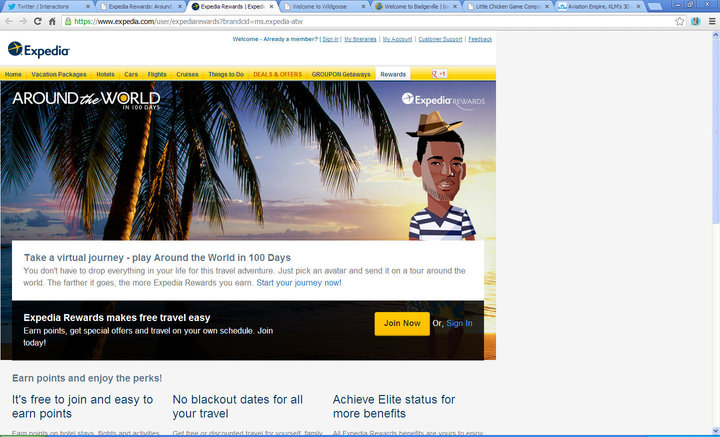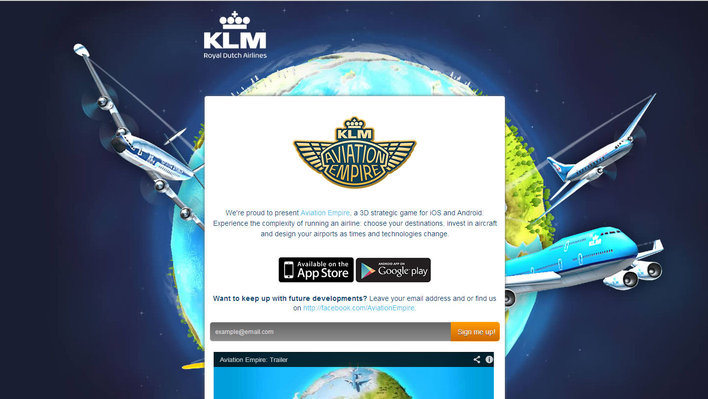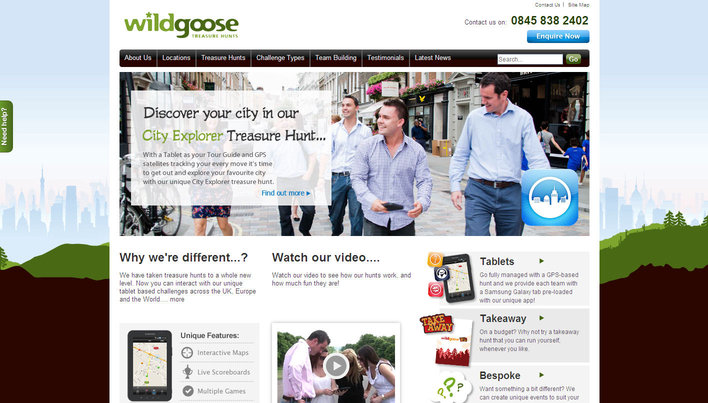Gamification: is it good for the travel business?
Not everyone agrees exactly what the word means, but most experts concur that gamification is likely to be the next big trend in travel industry programmes. Who is using it, how do they expect to benefit and how can you use it effectively? Andrew Hennigan has been investigating.
Like many business concepts, gamification is much older than the word that describes it. Definitions vary but what they all have in common is that a ‘gamified’ activity is one where elements from game design are used to make ordinary non-game activities more interesting.
All of them exploit the way people are motivated by achievements – like being awarded a ‘badge’ for reaching an arbitrary milestone which might seem trivial but which makes sense in the game world. The idea is not new and travel companies have long been rewarding loyal customers with points, cards and gifts, but today they are exploiting social media, smartphone and tablet technology to take this to a new level.
Typical of the new gamified programmes is Expedia’s Around The World in 100 Days, where players can win real-life rewards through game-like activities. “Around the World is a fun and engaging way for Expedia Rewards members to earn more points, learn more about Expedia, and learn more about some interesting destinations around the world,” says Julius Lai, Expedia’s Senior Director for Loyalty Marketing. “More broadly than that, we hope this contest raises awareness of the Expedia Rewards programme. If Around the World in 100 Days introduces Expedia and the Expedia Rewards programme to a new audience, and everyone has a little bit of fun along the way, I think we’ll consider that a success.”

Around the World in 100 Days was created by Expedia with the digital marketing agency Mindspace and is powered by a gamification platform developed by Badgeville, a specialist in this new field.
“Travel is a natural fit for gamification,” says Kris Duggan, Badgeville’s Chief Strategy Officer, “as the industry has been gamified for years with frequent flier and hotel points programmes. All of the major travel players are looking for ways to secure customer loyalty. Gamification helps them to create unique customer programmes to drive long-term loyalty.”
The Expedia programme enables people to earn reward points by exploring new travel destinations virtually and by engaging online. Each player chooses an avatar then sends this around the world on a virtual tour. The more your avatar travels the more rewards you earn, but at the same time you are learning about Expedia products that you might use yourself one day.
Empire building
Another early adopter of social media, KLM, also recently rolled out a new initiative that takes this approach one step further. With the Little Chicken Game Company it has developed a complete game for Android and IOS devices called Aviation Empire. In this game users create and manage their own airline, inspired by KLM’s own 94-year heritage. The game is linked to the real world through real-life GPS ‘check ins’ at airports around the world. Players earn game credits and badges, sharing their achievements through social media and also participating in a leader board. The game is free to download and play but players can make in-app purchases to build up their fleet or build new airports more quickly.

“With Aviation Empire KLM can reach its customers and potential customers so they get to know KLM and the brand better,” says Martijn van der Zee, Senior Vice President E-Commerce at Air France KLM. “Current followers on social media channels know the brand and through this game they become even more loyal to it and eventually could turn into a customer.”
KLM aims to have 100,000 players in Aviation Empire by the end of the year and, more importantly, gain valuable experience in applied gaming. “That experience will be used to further develop the game,” adds van der Zee, “and to connect the virtual game world with the real travel world more than we currently do with the GPS check-in option.”
Packaged for the city tour
You don’t need to be a major travel business to benefit from gamification. Travel operators can engage customers with gamified tours where a visit to a city or attraction is combined with game elements like questions to be answered and challenges to be completed. Travel companies can develop their game in house, hire developers or outsource the entire activity to another company. Wildgoose, a UK-based events company, uses tablet technology to create activities like treasure hunts or gamified city tours that can help people to explore and learn about an area, motivated by game mechanics. This combination of technology and knowhow is delivered to the customer in the form of a fully managed activity.
“We are an events company,” says Peter Barker, Wildgoose’s Operations Director, “and we provide a complete off-the-shelf package which includes the tablets, the app, specific content and the people who operate the activity.” With this approach the customer does not need to provide any knowhow or resources, so they can experiment with gamified activities with a minimal risk. “We programme specific content for a city,” says Barker, “and as the players go around in teams the GPS tracks the movement and at specific points the players have to answer questions.”

Wildgoose treasure hunt activities are commonly used for corporate team building activities, but the same technology is used to make interactive city guides that are more fun and engaging. They can also encourage competition between teams by sharing results and even follow the movements of the other teams on a map. “We run events for 12 to 600 people,” says Barker, “and this easy-to-use technology works for everyone from students to retirees.”
More gameplay ahead
Not everyone is adopting gamification yet, but the early adopters are now well established and others are beginning to follow their example. “The travel business is getting excited about gamification,” says Badgeville’s Kris Duggan. “The travel industry completely understands the concepts behind gamification because it is very much of an extension of traditional loyalty programmes designed for the digital age.” Though he also cautions that just adding a few badges is not the best way to approach it. “You could add a few badges to your site and call it gamified, but this does not showcase the true business value of gamification. You must think through the entire programme as you would when designing any loyalty programme.”
Expedia’s Julius Lai also has some advice for making gamification work in the travel business. “Be true to your product and your customer audience. Build something that fits your core product and its value proposition and it will also make intuitive sense to the customer,” he says, “and keep things simple, iterating in small bites.”

